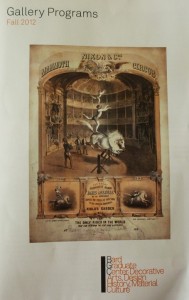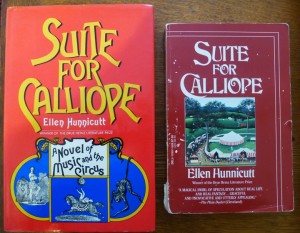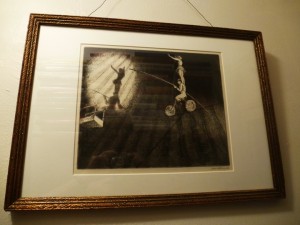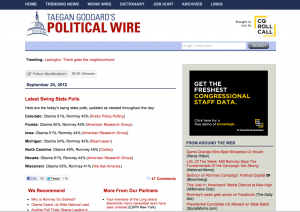Metric Storms the Stage at Radio City Music Hall
 Had a great time Sunday night at Radio City Music Hall, where I was the guest of Steve Conte, a friend I’ve made through CBCRadio 3, the great Internet radio station that plays indie rock n’ roll by Canadian bands, some of the best contemporary music being played and recorded nowadays. Steve, who is a comic book artist and writer who also operates FunnyBooks, a comics shop in Lake Hiawatha, NJ, had tickets for a bill headlined by Metric, a Montreal quartet fronted by fabulous lead singer Emily Haines. They play a high energy kind of doomsday pop–big chords and heavy sounds, veering toward the apocalyptic, yet infused with plenty of tuneful hooks that keep you remembering their melodies. Haynes sings fiercely, moving, prancing, and running around the stage like a big, lithe cat.
Had a great time Sunday night at Radio City Music Hall, where I was the guest of Steve Conte, a friend I’ve made through CBCRadio 3, the great Internet radio station that plays indie rock n’ roll by Canadian bands, some of the best contemporary music being played and recorded nowadays. Steve, who is a comic book artist and writer who also operates FunnyBooks, a comics shop in Lake Hiawatha, NJ, had tickets for a bill headlined by Metric, a Montreal quartet fronted by fabulous lead singer Emily Haines. They play a high energy kind of doomsday pop–big chords and heavy sounds, veering toward the apocalyptic, yet infused with plenty of tuneful hooks that keep you remembering their melodies. Haynes sings fiercely, moving, prancing, and running around the stage like a big, lithe cat.
Having been to many club shows at small venues on the Lower East Side over the past couple years, I was unprepared for how comfortable, even opulent it felt to take in a rock show at Radio City. Art Deco splendor everywhere your eye falls, both in the auditorium and out in the lobby; suited and uniformed staff serving at a nice bar, where I bought us each a pre-show Johnny Walker cocktail; and superb acoustics with great lighting effects.
The opening act was Half Moon Run, also from Montreal, and they also played a beautiful set, later making a return to the stage at the end of Metric’s 90-minute set. Before that event, we were startled to hear Emily Haines welcome to the stage one of her musical heroes, Lou Reed. He came out for two songs, standing side by side with Haines.
If you don’t know Metric at all, here’s one of their band videos, the song “Gimme Sympathy.”
Here are photos I took from the terrific mezzanine seats Steve had gotten, which gave us a great view of the wide stage and handsome auditorium. I hope to go back to Radio City for another rock show–this one was excellent in every department. Thanks, Steve, for reminding me what a great venue it is! Please click through to see more than 20 photos from Metric’s performance.











